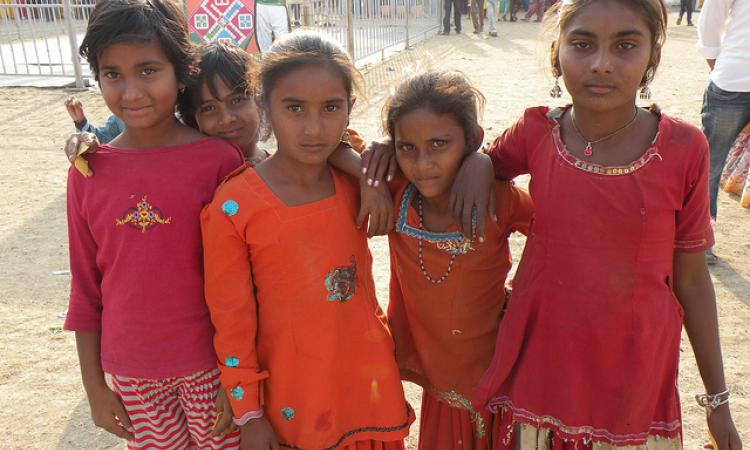
Author: Vijay Krishna
Let’s talk about how to motivate people to build and use toilets. Here is a story of how an effective communication message was created to motivate people to build toilets.
Our people at Arghyam went and spent time in the villages of Davangere. We were surprised to find that women ‘did’ want toilets. They spoke very passionately in a way that could not be faked, about the problems they faced with open defecation. There was less tree cover and protected areas for open defecation, they had to travel longer and longer distances. Chances are high that they might be humiliated by the owners of the lands they frequent. Young boys or men may follow them to harass and play pranks. At the back of their mind, the possibility of serious trouble was there – snake bite, or even worse, rape. They had previously heard or read of such incidents and were convinced that it was not impossible of the same occurring in their villages.
So why did they not build toilets ? We asked further and found out the reason.
Breaking male bastions
Toilet building is a male domain. It involved investing a large sum of money and was a decision the woman could not take alone. It involved construction – procuring materials, dealing with masons and other service providers. It involved running after the Gram Panchayat officers to get the subsidy once the construction was completed. These things were typically (but, not always) done by men. So toilets could not be constructed without involving the men of the household.
However men did not feel the same urgency as the women to get toilets. Men typically went to work in the fields in the morning and would find a place to defecate on the way. Shame and privacy were less of an issue to them.
So, the communication challenge now became a bit clearer – women wanted toilets, but men were the decision-makers here. So, these men needed to be convinced to consent to and participate in building the toilet for the household.
Motivating the men
We then went to work on emotional motivators for the men. Would appealing to their love for the women work? Would appealing to their sense of honor work ?
After intense research and brainstorming, we came up with a relatively surprising choice – ‘responsibility’. Men did not respond very well to the other motivations. But ‘responsibility’ struck a chord with them. Even if they were not responsible, they wanted to be. They told us what in their mind was responsibility (do household repairs, take interest in children’s’ education, not being idle) and they told us who were the responsible men in the village. With women, it resonated even more strongly – a responsible husband or father meant peace of mind and many problems in life taken care of. Burdens could be shared.
We decided to go with this as the primary motivator and worked further to refine the message. We saw that men shared a particular bond of love and concern for their girl children. Expressing affection for children was more acceptable than expressing affection for their wives. The responsible man image was therefore refined into a responsible father of an adolescent daughter. Finally the message was translated into communication materials.
An appeal to all the ‘responsible’ fathers
A signature image was created for the campaign - a husband, wife and daughter; with the daughter coming out of a newly built toilet. An animated film was created which showed the life arc of a responsible man – how he met and faced challenges in life with dignity. And when his daughter had a bad experience with open defecation one day, he did the right thing – built her a toilet.
Another interesting element was added to the communication. Men tended to be in denial about the problems of women. So, how do we sensitise them to the problems faced by women in open defecation?
We settled on a street play. In the play, the man is challenged by his wife to spend a day in woman’s clothing, pretending to be a woman. The problems he then runs into while defecating were humorously portrayed. A huge hit, the street play was certainly one of the high points in the communication strategy employed to get the men to change their mindsets.
There is a lot more to talk about in the project. But that is for another day. For now the point we want to make is that quality communication can make a huge difference in campaigns aimed at bringing sanitation behavior change.
It is important to identify that ‘one’ factor which motivates people to do something that they have been avoiding for so long. And this is usually achieved through an emotional connect and not through rational arguments like health for sanitation, which has often been used in this context. The success of a rational strategy is ambivalent at best, unlike the emotional one, the results of which are clear-cut and unequivocal most of the time.
It is no surprise that women prefer toilets to defecating in open fields while men remain rather indifferent to the whole proposition. Being the dominant decision makers at home, the men need to be thoroughly convinced for any toilet related activity to be successful. Arghyam's experience in Davangere has proved that tugging fathers' emotional strings of being a responsible parent gets the job done rather than using rational arguments to encourage toilet construction in rural areas.
The author works for Arghyam, a charitable foundation established by Rohini Nilekani. Arghyam’s experiences supporting sanitation initiatives across the country are shared here.